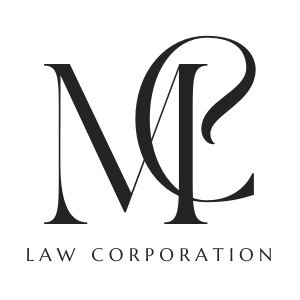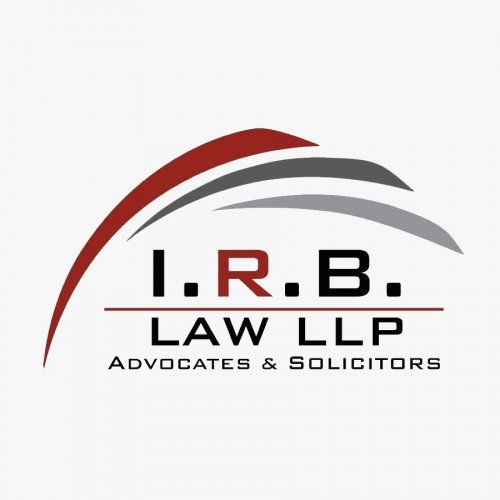Best Debt & Collection Lawyers in City Hall
Share your needs with us, get contacted by law firms.
Free. Takes 2 min.
List of the best lawyers in City Hall, Singapore
Singapore Debt & Collection Legal Questions answered by Lawyers
Browse our 1 legal question about Debt & Collection in Singapore and read the lawyer answers, or ask your own questions for free.
- Debt collection
- I am based in Singapore and hold a Singaporean passport. However, I have a debt to claim from someone in the Philippines, Lipa City, Batangas.
-
Lawyer answer by Yuen Law LLC
Thank you for reaching out to our firm. May we know the size of the claim, and how it arose?
Read full answer
About Debt & Collection Law in City Hall, Singapore:
Debt & Collection law in City Hall, Singapore governs the process of collecting debts owed by individuals or businesses. It involves legal actions that can be taken by creditors to recover money owed, including filing lawsuits, obtaining judgments, and seeking to enforce them through various means. Understanding the laws surrounding debt collection is crucial to navigating financial disputes and obligations in a fair and lawful manner.
Why You May Need a Lawyer:
There are several situations where you may need a lawyer specializing in Debt & Collection law in City Hall, Singapore. These include:
- Dealing with aggressive debt collectors
- Facing lawsuits for unpaid debts
- Negotiating settlement agreements with creditors
- Defending against claims of fraudulent debts
- Understanding your rights and obligations under debt collection laws
Local Laws Overview:
In City Hall, Singapore, debt collection is governed primarily by the Civil Law Act, the Limitation Act, and the Bankruptcy Act. These laws outline the legal processes for recovering debts, including the statute of limitations for debt collection, the requirements for initiating legal actions, and the rights and protections afforded to debtors. It is important to consult with a lawyer who is familiar with these local laws to ensure compliance and protect your interests in debt collection matters.
Frequently Asked Questions:
1. What are my rights as a debtor in City Hall, Singapore?
Debtors have rights protected under the law, including protection from harassment by debt collectors, the right to request validation of debts, and the right to dispute debts that are inaccurate or fraudulent.
2. Can creditors seize my assets in debt collection cases?
Under certain circumstances, creditors may be able to seize assets to satisfy a debt, but there are legal limitations and procedures that must be followed. Consult with a lawyer to understand your rights and options.
3. How long do creditors have to collect a debt in City Hall, Singapore?
The statute of limitations for debt collection in City Hall, Singapore varies depending on the type of debt. It is important to be aware of these limitations to protect yourself from unlawful collection attempts.
4. Can I negotiate a settlement with my creditors?
Yes, it is possible to negotiate a settlement with creditors to repay a debt for less than the full amount owed. A lawyer can help you navigate this process and ensure that the agreement is legally binding.
5. What are the consequences of not paying my debts in City Hall, Singapore?
Failing to pay your debts can result in legal actions by creditors, such as lawsuits, judgments, and potentially bankruptcy proceedings. It is important to address your debts promptly and seek legal advice if necessary.
6. Can I dispute a debt that I believe is not valid?
Yes, you have the right to dispute a debt that you believe is not valid, inaccurate, or fraudulent. You can request validation of the debt from the creditor and challenge it through appropriate legal channels if necessary.
7. What should I do if I am being harassed by debt collectors?
If you are being harassed by debt collectors, you can report the harassment to the relevant authorities and seek legal help to protect your rights. Debt collectors are required to abide by specific rules and regulations in their collection practices.
8. Can I be arrested for not paying my debts in City Hall, Singapore?
No, debtors cannot be arrested for failure to pay debts in City Hall, Singapore. Debt collection practices are regulated by law, and creditors must follow legal procedures to collect debts.
9. How can I avoid falling into debt in the future?
To avoid falling into debt in the future, it is important to budget, track your expenses, and prioritize your financial obligations. Seeking financial counseling and planning can also help you manage your finances effectively.
10. How can a lawyer help me with debt collection issues?
A lawyer specializing in Debt & Collection law can provide legal advice, represent you in negotiations or court proceedings, help you understand your rights and obligations, and work to protect your interests in debt collection matters. Consulting with a lawyer can ensure that you receive the necessary guidance and support in resolving debt-related disputes.
Additional Resources:
For additional resources and information on Debt & Collection law in City Hall, Singapore, you can visit the MinLaw Legal Services Regulatory Authority website or contact the Consumer Association of Singapore for assistance and guidance on debt-related issues.
Next Steps:
If you require legal assistance in Debt & Collection matters in City Hall, Singapore, it is recommended to contact a qualified lawyer specializing in this field. Seek a consultation to discuss your specific situation, understand your rights and options, and receive personalized legal advice to address your debt collection issues effectively.
Lawzana helps you find the best lawyers and law firms in City Hall through a curated and pre-screened list of qualified legal professionals. Our platform offers rankings and detailed profiles of attorneys and law firms, allowing you to compare based on practice areas, including Debt & Collection, experience, and client feedback.
Each profile includes a description of the firm's areas of practice, client reviews, team members and partners, year of establishment, spoken languages, office locations, contact information, social media presence, and any published articles or resources. Most firms on our platform speak English and are experienced in both local and international legal matters.
Get a quote from top-rated law firms in City Hall, Singapore — quickly, securely, and without unnecessary hassle.
Disclaimer:
The information provided on this page is for general informational purposes only and does not constitute legal advice. While we strive to ensure the accuracy and relevance of the content, legal information may change over time, and interpretations of the law can vary. You should always consult with a qualified legal professional for advice specific to your situation.
We disclaim all liability for actions taken or not taken based on the content of this page. If you believe any information is incorrect or outdated, please contact us, and we will review and update it where appropriate.














